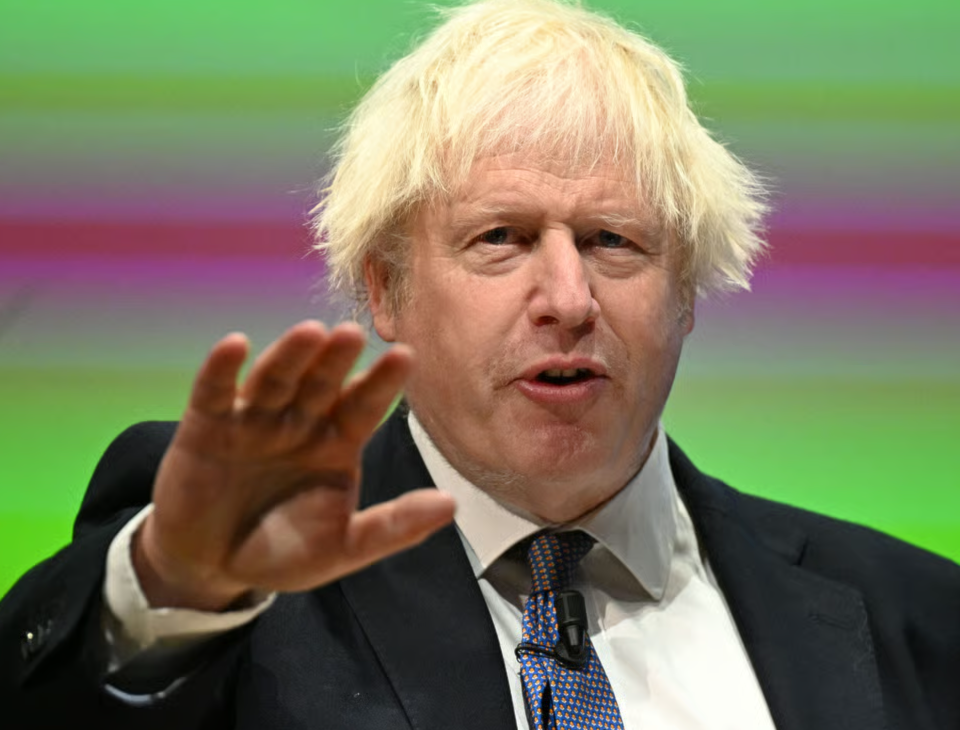UK COVID inquiry: Deadly delays and chaos under Boris Johnson
A national inquiry says toxic culture, indecision, and ignored warnings inside No. 10 fueled a disastrous COVID response, leaving Britain with deep and lasting damage.
-

Undated image of former British Prime Minister Boris Johnson (AFP via Getty Images)
A damning public inquiry has concluded that former UK Prime Minister Boris Johnson presided over a disorderly and damaging response to the COVID-19 pandemic, with delays to imposing lockdown measures blamed for an estimated 23,000 additional deaths.
Britain ultimately registered more than 230,000 COVID fatalities, on par with the United States and Italy, but worse than most Western European countries, and continues to face the economic fallout of the crisis.
The findings, published on Thursday, stem from the national inquiry launched by Johnson in May 2021. The report delivers a sweeping indictment of how government operated during the pandemic, criticising Johnson’s leadership as indecisive and unprepared, while condemning a breakdown of discipline and accountability inside No. 10.
Toxic culture and missed warnings
Inquiry chair, former judge Heather Hallett, described the environment at the heart of government in stark terms. “There was a toxic and chaotic culture at the centre of the UK government during the pandemic,” she wrote, arguing that critical voices were sidelined and decision-making suffered as a result. She found that the government failed to act early enough to contain the virus, saying that if timely restrictions had been introduced, the widespread national lockdown might have been avoided entirely. Instead, “the failure to act made it unavoidable.”
Hallett said Johnson underestimated the seriousness of the threat in early 2020, believing the outbreak would amount to little and shifting attention elsewhere while the country was still preoccupied with Brexit negotiations. She concluded that he “reinforced a culture in which the loudest voices prevailed and the views of other colleagues, particularly women, often went ignored, to the detriment of good decision-making.”
Johnson told the inquiry in 2023 that his administration had “vastly underestimated” the risks, conceded the government had been complacent, and issued an apology, acknowledging public anger. He did not issue any immediate comment following Thursday’s findings. One campaign group representing bereaved families said, “It is devastating to think of the lives that could have been saved under a different Prime Minister.”
Lockdown came 'too little, too late'
The report found that by the time Johnson addressed the nation on March 23, 2020, the response had already fallen behind events. Hallett judged the action “too little, too late,” a criticism she also directed at devolved governments in Scotland, Wales, and Northern Ireland.
According to the inquiry, had the UK moved to lockdown a week earlier on March 16, when the consensus of evidence said it was necessary, deaths in the first wave could have been cut by around 23,000, or 48%.
A second missed opportunity later in the year also led to further national lockdowns. While acknowledging the difficulty of the decisions, Hallett said Johnson frequently hesitated, changed course, and failed to make interventions quickly enough.
Scandal and infighting at the top
Johnson was eventually driven from office in July 2022 after a catalogue of scandals, including revelations that staff and officials held gatherings in Downing Street during lockdown, fatally eroding his leadership. Both Johnson and then-Chancellor Rishi Sunak, who later became prime minister, were fined for breaking restrictions. Former Health Secretary Matt Hancock also resigned after photographs emerged of him embracing an aide in violation of distancing rules. Hallett’s report said his “truthfulness and reliability” had already become a concern during high-level discussions.
Some of the harshest commentary was directed at Dominic Cummings, Johnson’s former chief advisor, who resigned in November 2020. While acknowledging his “commendable” role in pushing for policy changes early in the crisis, Hallett said he was also “a destabilising influence” who “used offensive, sexualised and misogynistic language” and frequently overstepped the boundaries of his role. Cummings told the inquiry that the Cabinet Office had failed during the pandemic. Neither he nor Hancock commented on the report's conclusions.
Thursday’s publication represents the second major report from the inquiry, which issued a similarly critical assessment of the country’s level of preparedness in a previous module. The latest document outlines 19 recommendations aimed at ensuring the government responds faster and more effectively to future public health emergencies.

 4 Min Read
4 Min Read








